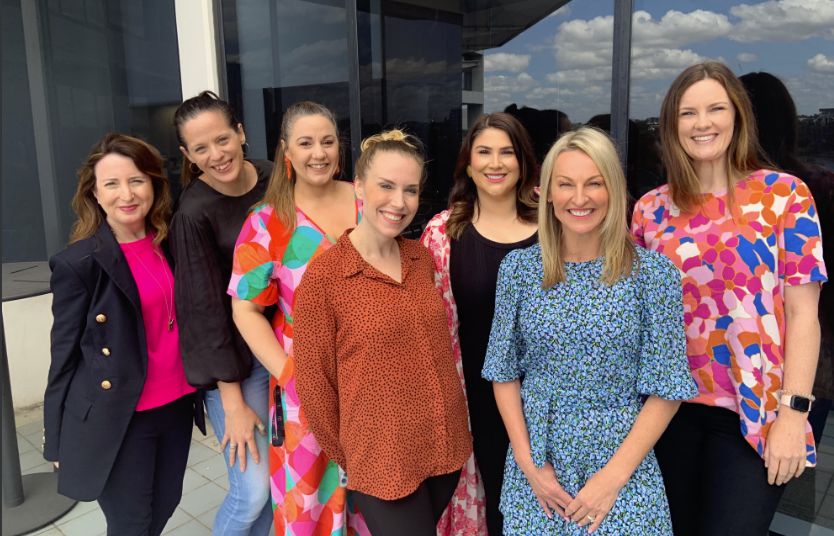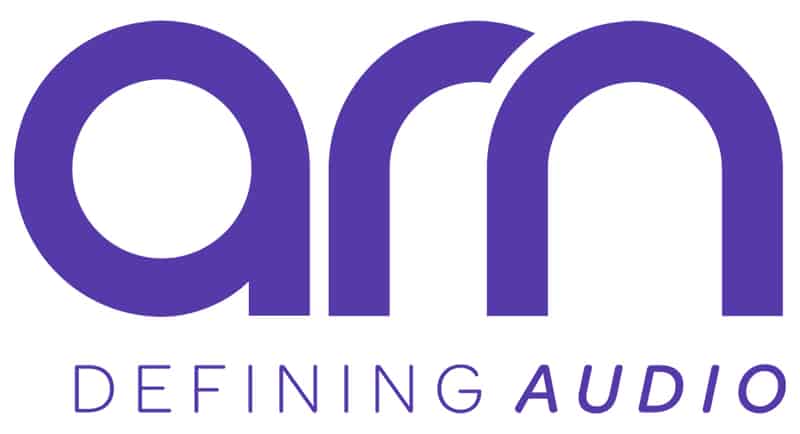KIIS 97.3’s all-female leadership team: “There’s no radio station job women can’t do.”

Brisbane brekkie host Robin Bailey has worked in commercial radio for more than 35 years, and for much of that time, she found herself the only woman in the room.
Over those three-plus decades, Robin has never worked with a leadership team made up entirely of women.
Until now.
Today, the KIIS 97.3 leadership team based in Brisbane includes a powerhouse group of eight women, making up an all-female leadership team.
ARN has prioritised ensuring that both men and women have an equal chance at opportunities. In KIIS Brisbane’s case, “The right people were hired for the right positions, and it has just become a group of talented women,” says Content Director Ali Longhurst.
Radio Today asked Robin, Ali and ARN Sales Director Emily Buckby their thoughts on why it’s important.
Specifically in the case of KIIS 97.3, what are the benefits of having an all-female leadership team?
ALI: At KIIS 973 – the demographic we target is 25-59 female skew, therefore decisions about the direction of the station can be made by those living the lifestyle of the audience we target. It wasn’t set out or pre-designed to be all female – the right people just happened to be a group of talented women.
We operate as efficiently as other Market Leadership teams around the country. With our brand being demographically skewed 60/40 female to male, it’s been a fantastic way to get a group of people to make decisions on what is best for the staff, audience and clients – looking through the eyes of the demo.
EMILY: There is something very inspiring in having an all-female leadership team. Having a female leadership team perhaps brings a slightly different perspective and approach to the business. Currently I think we have a very talented and experienced leadership team at KIIS 97.3.
ROBIN: This is the first time ever in my career that I have worked with an all female lead ship team. I think it’s so appropriate that its at KIIS 97.3 as we talk to women 25-54 years old and the people that love them.
Why is it important to have a larger representation of female leaders within the radio industry?
ALI: Media traditionally has been a male heavy management structure. It has been quite the norm for a long time to see a full team of men in the decision hot seat. It’s important for the team and the industry to see that women leaders in all facets of the radio station.
EMILY: Traditionally, the radio industry has been dominated largely by males, so it’s important to have more female leaders in the industry to help evolve and drive the industry forward. I believe if you work hard and have talent you should get ahead regardless of gender – my feeling is that this is not necessarily the case for females in all instances but that this situation is changing and that a lot of organisations (including ARN) are sincerely attempting to redress this issue.
ROBIN: There are a lot of men in this industry. For years I was often the only woman in the room. That has slowly been changing over the last 5 years but for young women wanting to get into radio you cannot be what you cannot see. Now, when women apply for jobs within our station you will meet with a female leader and that is inspiring and appropriate.
What message do you think it sends to young women thinking about a media career?
ALI: For young females coming up through the ranks, they are now represented, and can see a future in the industry where they may not have previously. Seeing every department of the business is a fantastic message to the industry that at ARN you are equal, and if you perform well, you will be able to take your career further.
EMILY: Strong female leadership within an organisation sends a very clear message to any talented and skilled female that the organisation is definitely a place where they would be assessed on performance, not gender, and that a female perspective was not only valued but was in a position of power to make decisions and affect change – in short a good place for a women to start, or further their careers!
ROBIN: There is no job within a radio station that you cannot do and there are successful women already doing these jobs who can mentor and help you.
What are your thoughts on ‘gender quotas’ in the workplace? Should employees be selected on the basis of their gender, or because they’re simply the right person for the job?
ALI: I believe it should be the right person for the job every time – However the questions should be asked ‘why’ if a business is finding their workforce and management is predominantly one way or the other. Does moving upward seem unachievable to a particular gender – and if the answer is yes, then there is a big issue culturally that needs to be addressed.
EMILY: I believe everyone, no matter their gender, religion, or race should have equal opportunities. I believe we should be judged on our ability and strengths first and foremost. Unfortunately, especially for women that is not always the case, which is why we find ourselves talking about ‘gender quotas.’ I personally don’t like gender quotas. I understand the rationale as it forces change in circumstances where this change might not organically occur or is occurring too slowly.
My view regarding proportionate female representation in leadership groups is that over time common sense will prevail. Women represent half of the community and any business that does not have a leadership group which incorporates perspectives, attitudes and ideas from a team that mirrors the community it engages with is bound to be at a disadvantage – I reckon the good businesses at least are waking up to this fact. ‘Gender quotas’ in my opinion carry an automatic stigma i.e. ‘you only got the job because of a quota, not because you are particularly good or talented or the best candidate for the role.’
ROBIN: Gender quotas are kind of embarrassing because it means the only way we can see true equality in a work place is by making people employ a certain gender.
What I hope moving forward is there is no such thing, because it isn’t required and people are genuinely employed based on their skill. Gender, race and religion should have nothing to do with it but while we are still struggling with that concept – particularly in some industries – the idea of gender quotas at least sparks conversations.
Pictured in photo left to Right: Karen Trembath, Sarah Tawse, Kristine Hutton, Ali Longhurst- Content Director and Market Leader, Emily Buckby- Sales Director and Market Leader, Jane Zeller, Sophie Thomason



So there are only 2 genders?
Awesome photo of a very talented team.